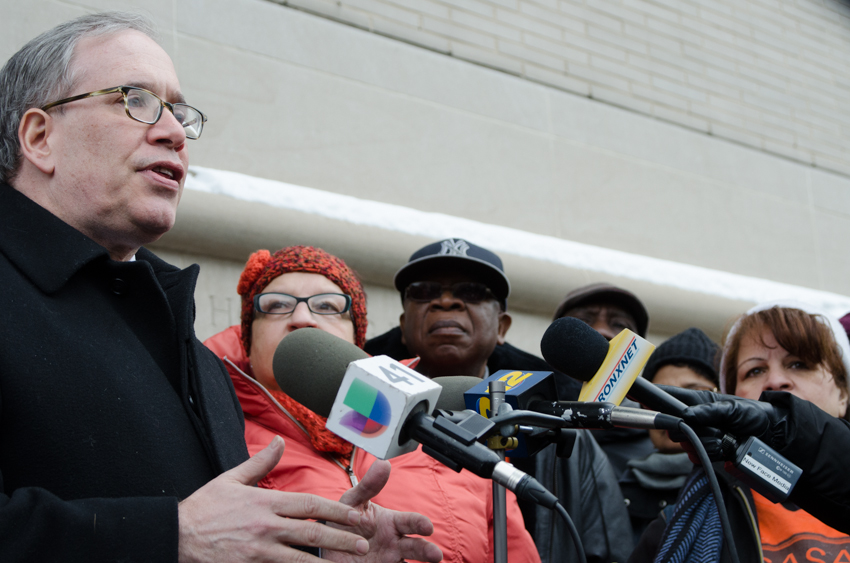
City Comptroller Scott M. Stringer is proposing new ways for New Yorkers to pay for security deposits because of the alarming number of issues specifically faced by low-income tenants.
A report released by Stringer’s office shows that in the Bronx tenants are paying on average more than 10 percent of their annual income to secure an apartment. In Melrose, Longwood, and Hunts Point, tenants are paying 15.8 percent of their annual income, and in Claremont-Bathgate they pay 25 percent.
“Every day, New Yorkers are working harder and saving less – and right now, huge proportions of their annual incomes are being held hostage in security deposits. These may just be considered the costs of being a renter in New York, but it’s not right and it’s not necessary,” Stringer said in a statement. “For too long, the deck has been stacked against New York’s working-class renters but we’re taking a step forward to reimagine how the housing system works in our City.”
As New York City becomes increasingly more unaffordable, homelessness spikes, and the ciity wants to avoid that additional cost. By making improvements to housing regulations and keeping people in their homes, the City hopes to save money.
Some recommendations Stringer–including a cap on security deposits, preventing landlords from charging more than one month’s rent on a one-year lease–would have to go through the State Legislature, which regulates the housing market.
Stringer also wants to make it easier for tenants without large savings to afford the cost of moving by allowing security deposits, pet deposits and move-in fees to be paid in installments instead of upfront. Rather than being forced to put out thousands of dollars upon moving in, tenants would be able to pay off their security deposits over a period of months. Of course, tenants could opt to pay the entire cost up front.
As an alternative to paying a security deposit, Stringer suggests tenants take advantage of new startup companies to pay the entire deposit. Renters would be able to pay a smaller monthly or one-time fee for the company to insure the property from damages. These startups have virtually no requirements, such as a credit score. However, renters would not get the money back afterwards even if there was no damage to the apartment. Despite being unable to receive the payments back, Stringer thinks using an insurance alternative would prevent tenants from having to pay steep deposits when first moving in, helping low-income renters from depleting their savings.
With money extremely tight for low-income renters, and stories of landlords not returning security deposits, Stringer proposes the money instead be held by a third-party.
The initiatives Stringer is calling for are supported by David R. Jones, CEO/President of the Community Service Society, an anti-poverty group. According to their annual survey, two out of every three low-income households claim they are unable to afford moving within their borough.
“[S]o a hefty security deposit could leave them with nothing to fall back on if a medical emergency or another crisis hits, and more at risk of rent arrears, eviction and homelessness,” Jones said.




